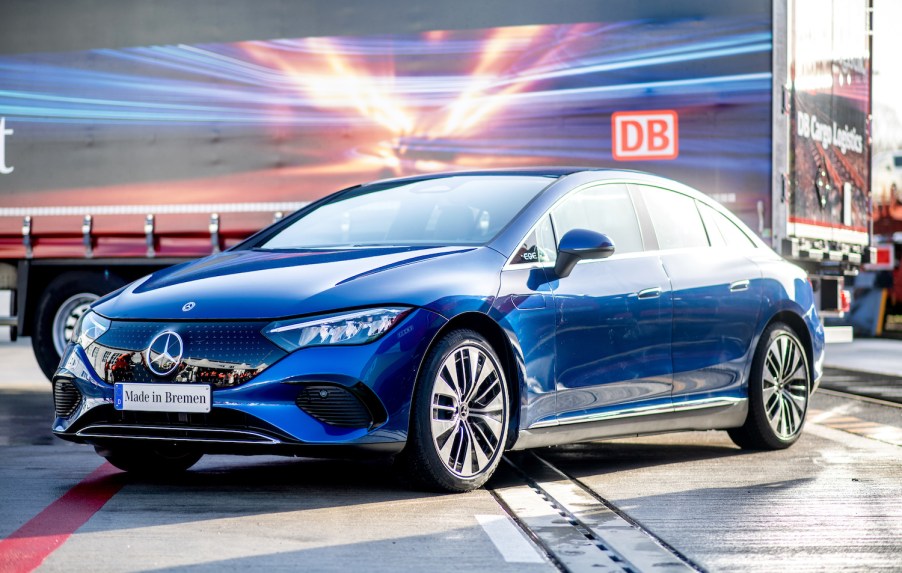
Mercedes Warns EVs May Get More Expensive Before They Get Cheaper
Electric Vehicles have a much higher purchase price than internal combustion vehicles. Though they often cost less to operate and maintain, this high initial cost is a barrier to entry for many drivers. The Mercedes-Benz CTO doesn’t see the price of EVs coming down anytime soon and warns they may even become more expensive first.
EVs as cheap as traditional cars are years away

Markus Schäfer is the Chief Technology Officer (CTO) at Mercedes-Benz. According to Yahoo News, he keeps tabs on the cost of current EVs by measuring the dollars per kilowatt that his company spends building its EV batteries. As Mercedes has fine-tuned its battery production, it has been able to reduce that number.
Schäfer is targeting the $50/kilowatt mark as the point at which EV prices might equal Internal Combustion Engine (ICE) prices. But he doubts he’ll achieve that number with current technology. Here’s what he says:
“Coming to 50 U.S. dollars per kilowatt, which would lead to comparable cost basis to an I.C.E. engine, I would say this is far out there…I don’t see that with the chemistry that we have today.”
Markus Schäfer, Mercedes CTO
Cost-effective EVs will need a new battery technology

The dollar per kilowatt metric is important because affordable EVs will not only need cheap batteries, but those batteries will need to pack a serious punch. Batteries are one of the most expensive component of today’s EVs. They are also one of the largest and heaviest.
Chemists at all the major automakers, and many supplier companies, are hard at working developing all-new EV batteries. These batteries target a high “energy density” and a low cost. But Yahoo points out that getting a working battery from lab to assembly line will require years of testing for durability and safety.
Not only will EVs remain expensive for years, but as we build more of them, each vehicle may become more expensive.
Increased demand may max out the world’s Lithium mines

The truth is that Mercedes is far from the $50/kilowatt mark. In fact, the German automaker is still chasing the $100/kilowatt mark with its EV production methods. And Schäfer worries rising raw material costs may set automakers back further.
Schäfer said, “So the anticipated decrease well below 100 US dollars or Euros per kilowatt, that might take longer…The chemistry, honestly, if we’re staying with the ingredients we have today … there’s not that breakthrough foreseeable.”
One of the most important elements in current EV batteries is Lithium. The world’s Lithium mining industry is sufficient to build all the batteries we need for cellphone and laptops. But Schäfer is skeptical it will be able to supply the rising demand created by EVs. A Lithium shortage, in turn, could drive the cost of EVs up in the short term.
Yahoo warned, “The demand for lithium batteries is on pace to far outstrip the capacity of current rare-earth metal mines. Earth has more deposits of lithium, but bringing mines online is complicated and expensive.”
So while automakers are striving to make EVs more cheaply, an increased cost of raw materials due to increased EV production may actually make them more expensive in the short term.
See a CNBC report on the looming Lithium shortage in the video below:



